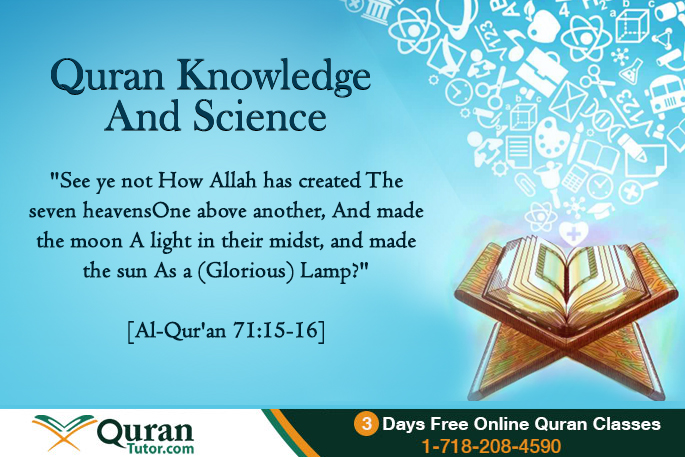Qur’an and Knowledge

There are many misunderstandings that surround the Qur’an. It is often depicted as a book of violence and hatred that only pushes Muslims to blindly commit acts of terror. Many people who have not read the Qur’an or who do not understand enough about it to properly approach it are unable to understand its core messages. Not only does the Qur’an not encourage violence, it provides a guideline to engage the world and to find a purpose in life. One of the main ways it does this is by making knowledge and reason central to religious pursuit. In other words, a major feature of the Qur’an is its emphasis on reason as a means to understanding this world and the Divine.
The importance of knowledge is one of the main messages of the Qur’an. In fact, the first verses revealed to the Prophet Muhammad were:
“Read! In the Name of your Lord, Who has created (all that exists), He has created man from a clot (a piece of thick coagulated blood) Read! And your Lord is the Most Generous, Who has taught (the writing) by the pen. He has taught man that which he knew not. (Qur’an 96: 1-4)
These first verses refer to the human ability to write–record knowledge–and speak to how it is a gift from God because it allowed human beings to excel beyond other creatures. This knowledge carries with it responsibility. Human beings are repeatedly instructed to use their intellect in order to comprehend the Divine Will.
According to the Qur’an, God has made a world filled with signs, ayat (which also means verses in the Qur’an), for human beings to reflect on and ponder. Belief should not be based on blind faith or simply adhering to tradition; rather, it should be based on knowledge, reflection, and understanding. Dr. Jeffery Lang, a professor of mathematics and a well-known revert to Islam (it is believed that everyone is born in a state of submission to God–a muslim–and that when someone becomes Muslim later in their lives they are returning to that original state), has found that the Qur’an mentions the word “knowledge” in various forms 854 times and that many times human beings are asked to think, consider, reason. Some examples from the Qur’an:
And say, Lord increase my knowledge. (Qur’an 20:114)
And He has subjected to you, as from Him, all that is in the heavens and on earth: behold in that are Signs indeed for those who reflect. (Qur’an 45: 13)
And it is He Who spread out the earth, and set thereon mountains standing firm, and (flowing) rivers: and fruit of every kind He made in pairs, two and two: He draweth the Night as a veil o’er the Day. Behold, verily in these things there are Signs for those who consider! And in the earth are tracts (diverse though) neighbouring, and gardens of vines and fields sown with corn, and palm trees? growing out of single roots or otherwise: watered with the same water, yet some of them We make more excellent than others to eat. Behold, verily in these things there are Signs for those who understand! (Qur’an 13:3-4)
The message in these verses is not blind belief but is based on human beings thinking about signs like natural phenomena in order to attain belief.
Not only is seeking knowledge central to the Qur’anic message, but it is further emphasized by hadith of the Prophet Muhammad. Although the Prophet was illiterate, he recognized the significance of using the human intellect in pursuit of knowledge:
“A person who follows a path for acquiring knowledge, Allah will make easy the passage to Paradise for him.”
“A Muslim will not tire of knowledge until he reaches Heaven.”
This injunction in the Qur’an and the Prophetic traditions pushed the early Muslims on a quest for knowledge. Science was not seen to be contrary to the faith. Rather, it was considered to be a religious duty to study and to understand. As the Islamic Empire increased in size so did the thirst for more knowledge in all fields.
It is for this reason that some Muslim intellectuals not only highlight to non-Muslims the emphasis in the Qur’an on reason but remind Muslims as well of this religious duty. Khaled Abou El Fadl, for example, in Conference of the Books: The Search for Beauty in Islam, argues that Muslims have become distracted from this duty because of dogma and that in order to rectify their current state they must, like the early Muslims, invest in furthering their knowledge.
Thus, to truly understand the Qur’an, one must recognize its call to reason and its rejection of blind belief without reflection. True belief comes through knowledge.
Have you read the Qur’an? How do other scriptures address the question of knowledge and reason? Does knowing the Qur’an’s focus on reason change your ideas about the text? Do you think Muslims have been successful in their pursuit of knowledge or are they bogged down by dogma? Please share your comments below.

